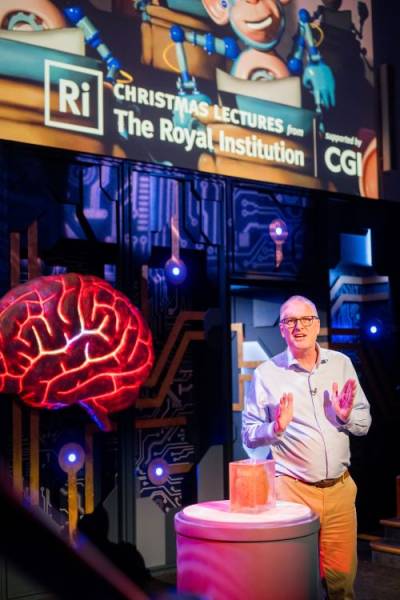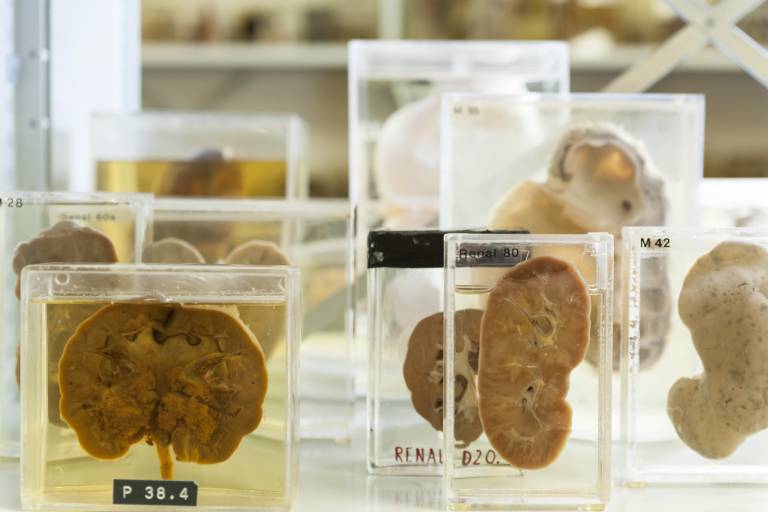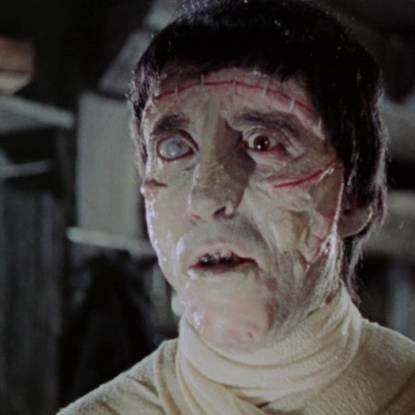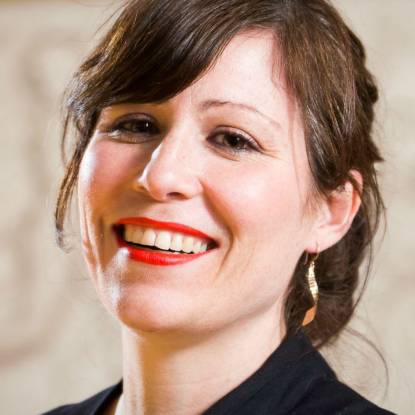Brain specimen from the UCL Pathology Museum featured in the BBC’s Royal Institution Christmas Lectures
Please note that this page contains images of human remains.

© Paul Wilkinson Photography
In December, the UCL Pathology Museum was asked to provide a human brain specimen to be used in the filming of the Royal Institution’s Christmas Lectures on BBC Four. The Museum’s Curator, Liz Blanks, selected a suitable brain specimen from the large educational collection at the Museum, which she accompanied to the Royal Institution Lecture Theatre for filming in early December.
This year’s Lectures, ‘The Truth about AI’, are led by Professor Mike Woolridge, who explores this rapidly evolving technology and the science behind it. The first lecture opens with Woolridge standing in front of the specimen:
“And our story starts with this. This is a human brain. Of all the wonders in the universe, this is the greatest. Forget about black holes and neutron stars and supernovas - you are looking at the most incredible thing in all of creation.” Using the Museum’s brain as a visual aid, Woolridge explains how the human brain is the starting point from which AI has developed, demonstrating how artificial neural networks are inspired by human ones.
Liz Blanks, Curator of UCL Science Collections, said: “It was a challenge to find the right specimen that met the programme’s requirements as most of the collection is pathological in nature, but thanks to our comprehensive collection of 8,000 medical specimens, we were pleased to be able to help. The filming and transportation of the brain specimen was a unique and memorable experience, and we are delighted to share a tiny part of our collection with a national audience.”

Historically, this style of specimen-based teaching, paid tribute to in the RI’s lecture, was the predominant educational tool for medical students. The UCL Pathology Museum, which has specimens dating back to the 1820s, remains an important teaching collection owing to its size and variety, and many specimens are now of historical research significance.
The full Royal Institution Christmas Lectures are available on BBC iPlayer. Look out for the brain in Episode One, ‘How to Build an Intelligent Machine’, first broadcast on Boxing Day 2023.
 Close
Close



